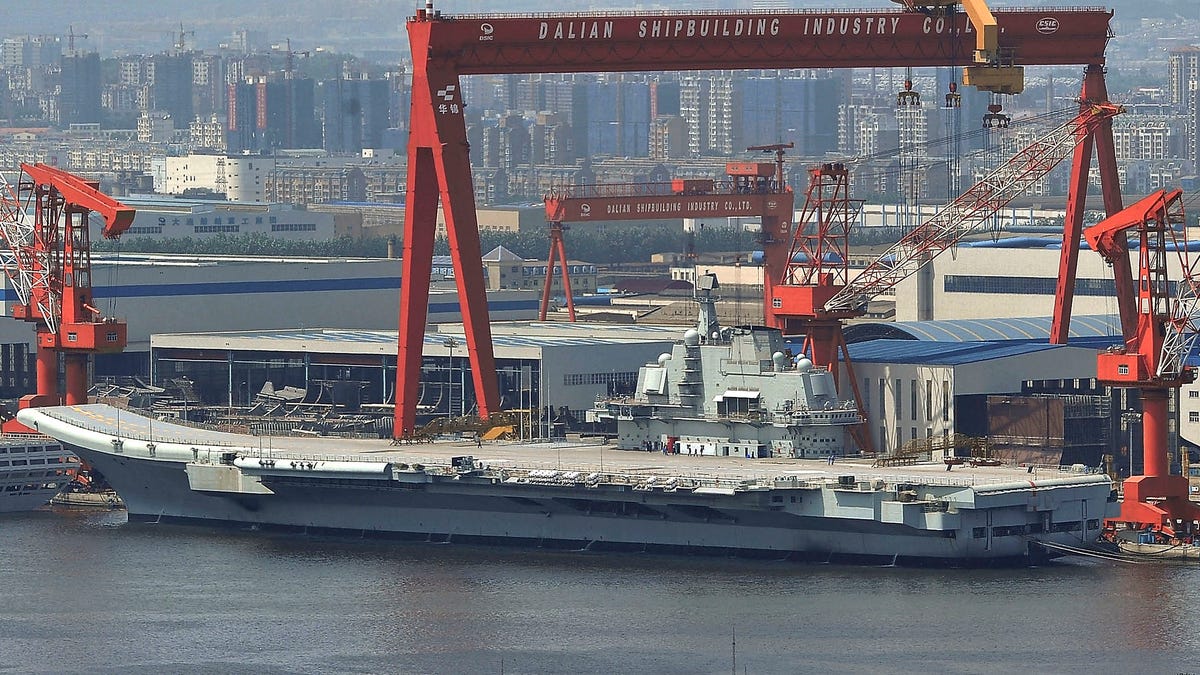
Aug. 6: In this photo, a Chinese aircraft carrier, which had been under refurbishment, is docked at Dalian port in in northeast Liaoning province. China's first aircraft carrier started sea trials Wednesday, Aug. 10, a step that will likely boost concerns about the country's naval ambitions amid sea territorial disputes. (AP/China Color Photo)
BEIJING – China defended its booming military spending on Monday, saying vast investments in the armed forces have contributed to global peace and stability, despite concerns among the U.S. and Beijing's Asian neighbors over sharpening territorial disputes.
However, in a break with previous years, no figure for this year's defense budget was presented at a news conference held Monday on the eve of the annual legislative session. Spokeswoman Fu Ying said the figure would appear in the overall budget to be released Tuesday.
Approving the budget is among the key tasks of the session, which this year will see new leaders placed into top government positions after they were elevated at November's Communist Party congress.
Party leader Xi Jinping will take over from Hu Jintao as president, as well as head of the government's Central Military Commission, as part of China's once-a-decade power transition. In addition, the session approves top Cabinet appointments such as the defense minister.
Chinese defense spending has grown substantially each year for more than two decades, and last year rose 11.2 percent to $106.4 billion an increase of about 67 billion.
Only the United States spends more on defense.
Fu said China maintained a strictly defensive military posture and cited U.N. peacekeeping missions and anti-piracy patrols in the Gulf of Aden as examples of Beijing's contribution to world peace and stability.
"As such a big country, China's inability to ensure its own security would not be good news for the world," Fu said. "Our strengthening of our defense is to defend ourselves, to defend security and peace, and not to threaten other countries."
This year's legislative session comes amid a continuing standoff with Japan over disputed islands in the East China Sea. Ships and planes from both sides have repeatedly confronted each other in the area, and another Chinese spokesman on Saturday warned that Japan would bear full responsibility for any "unintended clashes."
China's feuds with Vietnam and the Philippines over territory in the South China Sea have also flared periodically in recent months, while Beijing has been unnerved by the U.S. military's renewed focus on the Asia-Pacific, including plans to station marines in northern Australia on training missions.
Outside concerns about China's military buildup are also fed by doubts over the reliability of the defense budget figure, which is widely believed to exclude foreign military purchases and other items. In its 2012 report on China's military, the Pentagon estimated actual spending of $120-180 billion in 2011, well above China's official figure that year of $91.5 billion.
